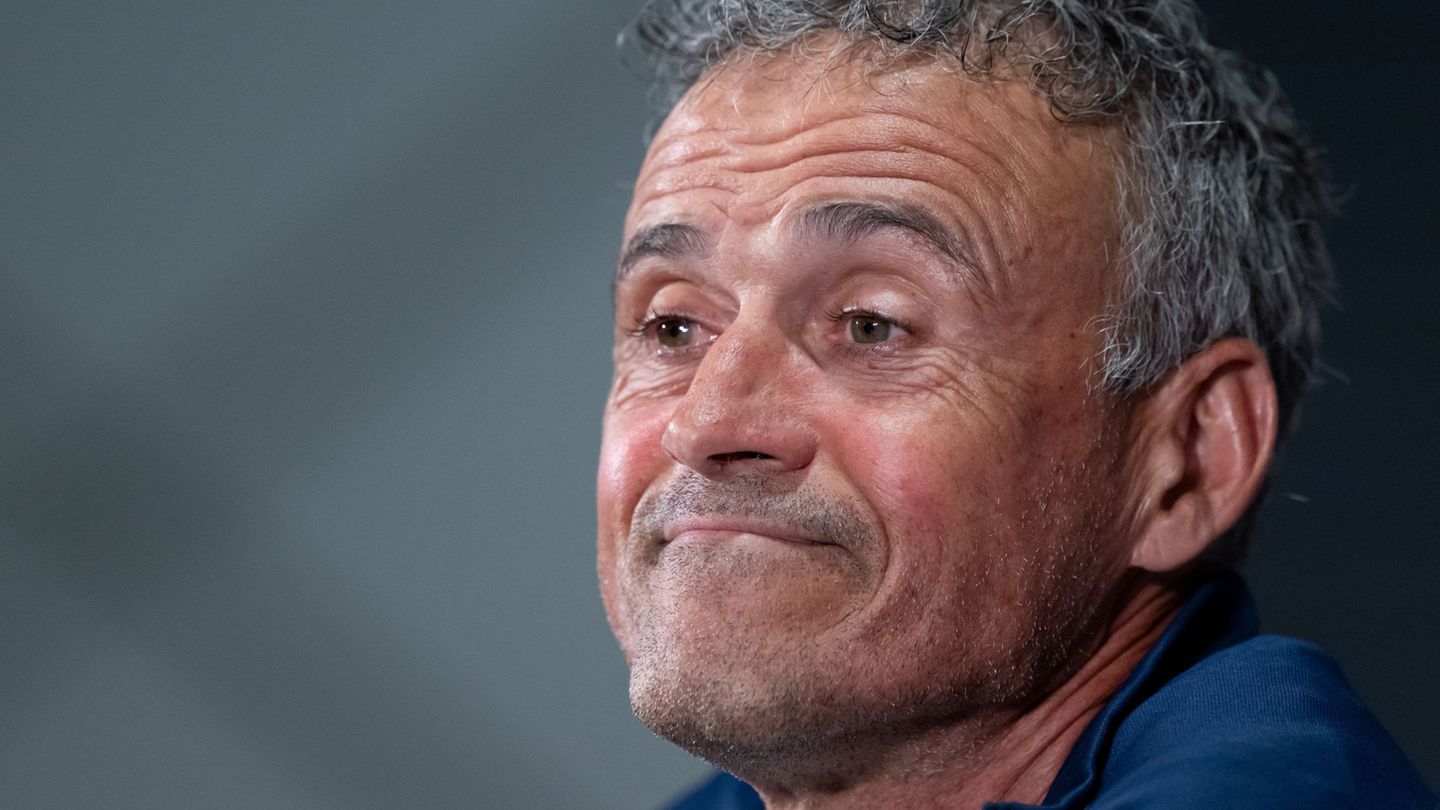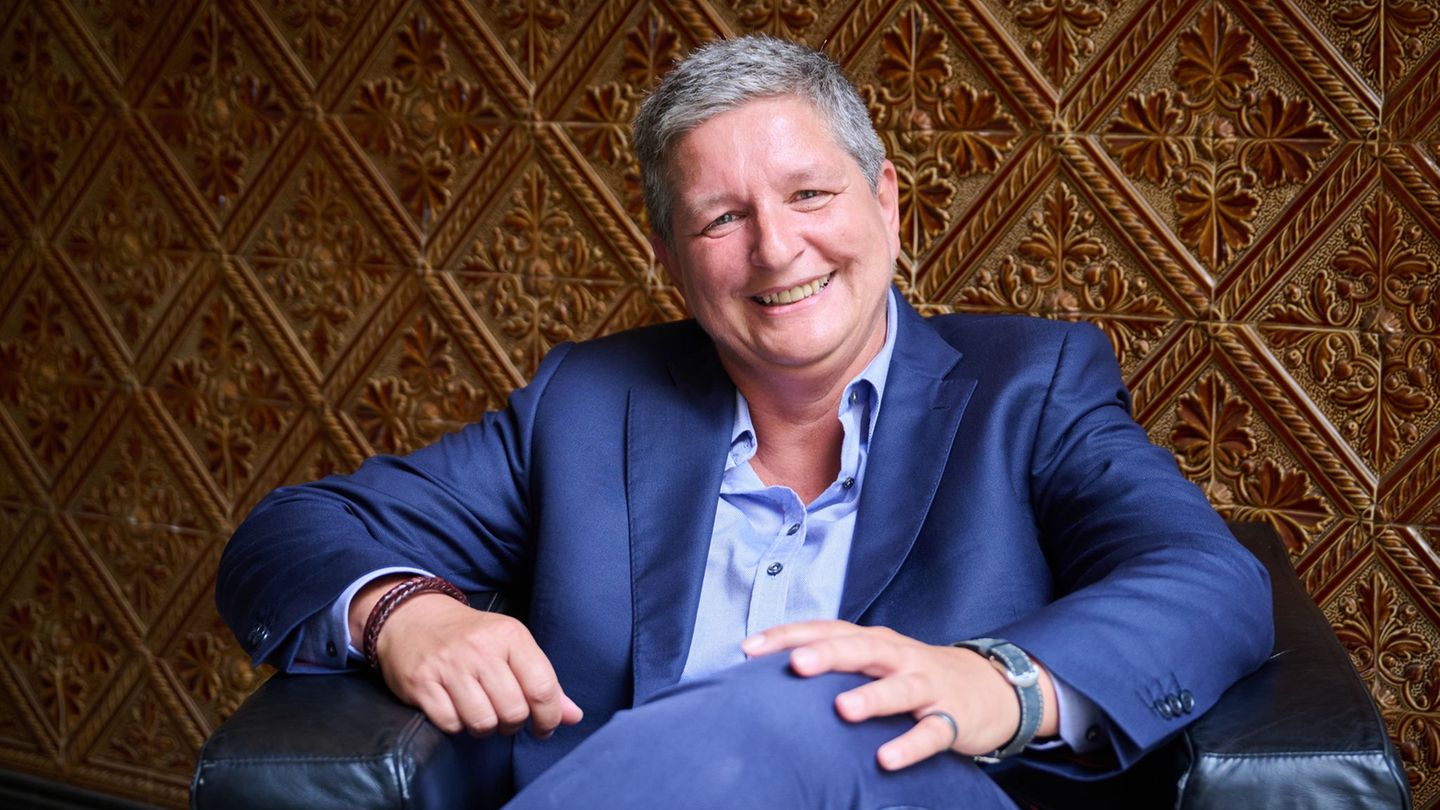The state elections in Saxony and Thuringia have created a confusing picture. Governing in the coming years is likely to become extremely complicated. But there is a common denominator.
Voters in Thuringia and Saxony have presented politicians with a difficult task – perhaps even an almost unsolvable puzzle. For the first time, the AfD is the strongest force after a state election. In Thuringia, the far-right party managed this by a large margin ahead of the CDU. In Saxony, it had a photo finish with the Union on election night. However, the AfD will probably not govern anywhere due to a lack of partners. The situation is different for the year’s high-flyer: the Sahra Wagenknecht (BSW) alliance could get involved in both states thanks to double-digit results – provided that completely new constellations can be formed.
The Thuringian BSW top candidate Katja Wolf seemed overwhelmed by the first predictions for her party of 14.5 to 16 percent of the vote. “I have goosebumps, I admit it,” said the former Left Party politician and mayor of Eisenach at the BSW election party with a view of Erfurt Cathedral. She spoke of a historic moment. She hugged party founder Sahra Wagenknecht, and cheers erupted again and again. It was a “huge leap of faith,” said Wolf. “We promise this country: We won’t leave you alone.”
AfD sees “historic victory” in Thuringia
The AfD, which according to projections in Thuringia was well over 30 percent and thus far ahead of the CDU, did not allow the public to share in the scenes of celebration – it had excluded all journalists from the election party at short notice. However, leading candidate Björn Höcke spoke of a “historic victory” as he left the party before driving off to the state parliament. Distant applause and chants of “Höcke, Höcke” and “Now it starts” could be heard from the party venue, which was closed to the media.
Meanwhile, AfD federal leader Alice Weidel formulated demands on television: Under normal circumstances, it is the strongest party that is responsible for sounding out the situation – anything else would be “ignoring the will of the voters,” said Weidel on ARD. Over the course of the evening, it emerged that the party in Thuringia probably has a so-called blocking minority of more than a third of the state parliament mandates and could theoretically block important decisions. But they “do not want to abuse this under any circumstances,” assured Höcke. The bottom line was: The AfD is strong, but far from having its own majority – in Thuringia as well as in Saxony, where, according to projections, it was just behind Prime Minister Michael Kretschmer’s CDU with values of around 31 percent.
In Saxony, Kretschmer has a chance of remaining in office. In Thuringia, however, after his Left Party collapsed, Prime Minister Bodo Ramelow will probably have to hand over the reins to the runner-up, CDU top candidate Mario Voigt. Who will govern with whom in both states will only become clear in the next few weeks. The only thing that seemed clear on Sunday evening was that the AfD would probably have no say in the matter. André Wendt, Vice President of the State Parliament in Saxony, admitted that he had expected a better result. “I am aware that trees do not grow to the sky.” Personally, he is “happy, but not overjoyed.”
Party system under pressure
If there is a common message in this complicated election result, then perhaps it is this: it is a lesson for the dissatisfied. More than 40 percent in both countries voted for two populist parties that are questioning almost everything that the so-called establishment has to offer so far. Those governing in Berlin are being punished, the traffic light parties SPD, Greens and FDP, but also the Left. The Union is dragging its feet to the finish line. The bitter irony is that the foreseeable difficulty of governing in both countries could only increase the frustration of many people. The party system is under enormous pressure. This is not only true in East Germany, but especially there.
The BSW, led by the former Left Party member Wagenknecht, does not want to work with the AfD or be lumped together with the party, which is considered by the respective constitutional protection agencies in both Thuringia and Saxony to be definitely right-wing extremist. In fact, the BSW does not fit into any known category. Wagenknecht takes a similar line to the AfD when it comes to limiting migration and rejecting military aid for Ukraine, but is more left-wing in social and economic policy. According to opinion researchers, it relies more on left-wing voters – while the AfD can count on a significant percentage of supporters with staunchly right-wing views.
The “against those at the top” parties
But both have in common the fact that they see themselves as “anti-those-at-the-top parties”. They fired sharp broadsides against those in power, especially against the traffic light coalition in Berlin. Both AfD and BSW deny them almost any ability to solve problems. They paint the state of the country in the darkest colors and offer themselves as saviors. “Our country is not in a good state,” it said in the BSW founding manifesto.
This struck a nerve. Trust in the traditional parties and in the functioning of democracy is dwindling in both federal states. In the Saxony Monitor survey presented at the beginning of the year, 81 percent of participants said that most politicians only want the votes of the voters. In a similar survey in Thuringia, the Thuringia Monitor, only 45 percent of respondents said they were satisfied with the practice of democracy – although 88 percent of respondents generally support the democratic form of government.
Fears of crime and migration
In addition, there are currently great fears. According to figures published this weekend by the ARD Deutschlandtrend, 77 percent of people in Saxony and Thuringia are very worried that crime will increase massively in the future. 67 percent fear that too many foreigners will come to the country, 55 percent that they will not be able to maintain their standard of living. In the survey for the ARD, only 39 percent in Saxony rated the economic situation as good, and in Thuringia only 30 percent.
In addition, 34 years after reunification, frustration is breaking out. In the ARD survey, three out of four respondents in both countries said that politics and the economy were still too strongly dominated by West Germans and that East Germans were still “second-class citizens” in many places. All in all, a socially explosive mix that is reflected in the election results.
The AfD and the BSW each reinforced, in their own way, doubts about the “system”, about parliamentary processes, about traditional media and about freedom of expression. On Saturday, at the end of the election campaign, Höcke spoke of a “cartel party rule” and of media that had been “bought”. It “doesn’t matter what you vote for”, all parties “are dissolving our Germany like a bar of soap under the water jet”. Only the AfD is different.
Party founder Wagenknecht said during the election campaign that the BSW had been launched “so that the people who want to protest are angry, so that the people who want change have a serious alternative that they can choose and that really changes something in their interests and puts the federal parties under pressure.”
Great expectations raised
Both parties have raised great expectations that they will initiate a “new beginning”. Höcke insisted until the end that he would become prime minister and that everything would soon be completely different. But without a partner, the AfD is left with only the opposition. The BSW, on the other hand, could soon find itself in a position to prove itself in government responsibility. Before that, however, oil and water would have to come together: the possible partner CDU is in some cases miles away from the positions of the BSW. Wagenknecht has also set conditions in Ukraine, Russia and NATO policy that are almost impossible to fulfill.
CDU General Secretary Carsten Linnemann dismissed them: “All I can say is that world politics is not made in Erfurt,” he said on ZDF. But Wagenknecht countered on election night: “What we will of course not do is create a government that disappoints people. Instead, we want a government that fulfills these hopes and expectations.” The CDU should be aware of its responsibility.
Source: Stern
I have been working in the news industry for over 6 years, first as a reporter and now as an editor. I have covered politics extensively, and my work has appeared in major newspapers and online news outlets around the world. In addition to my writing, I also contribute regularly to 24 Hours World.




